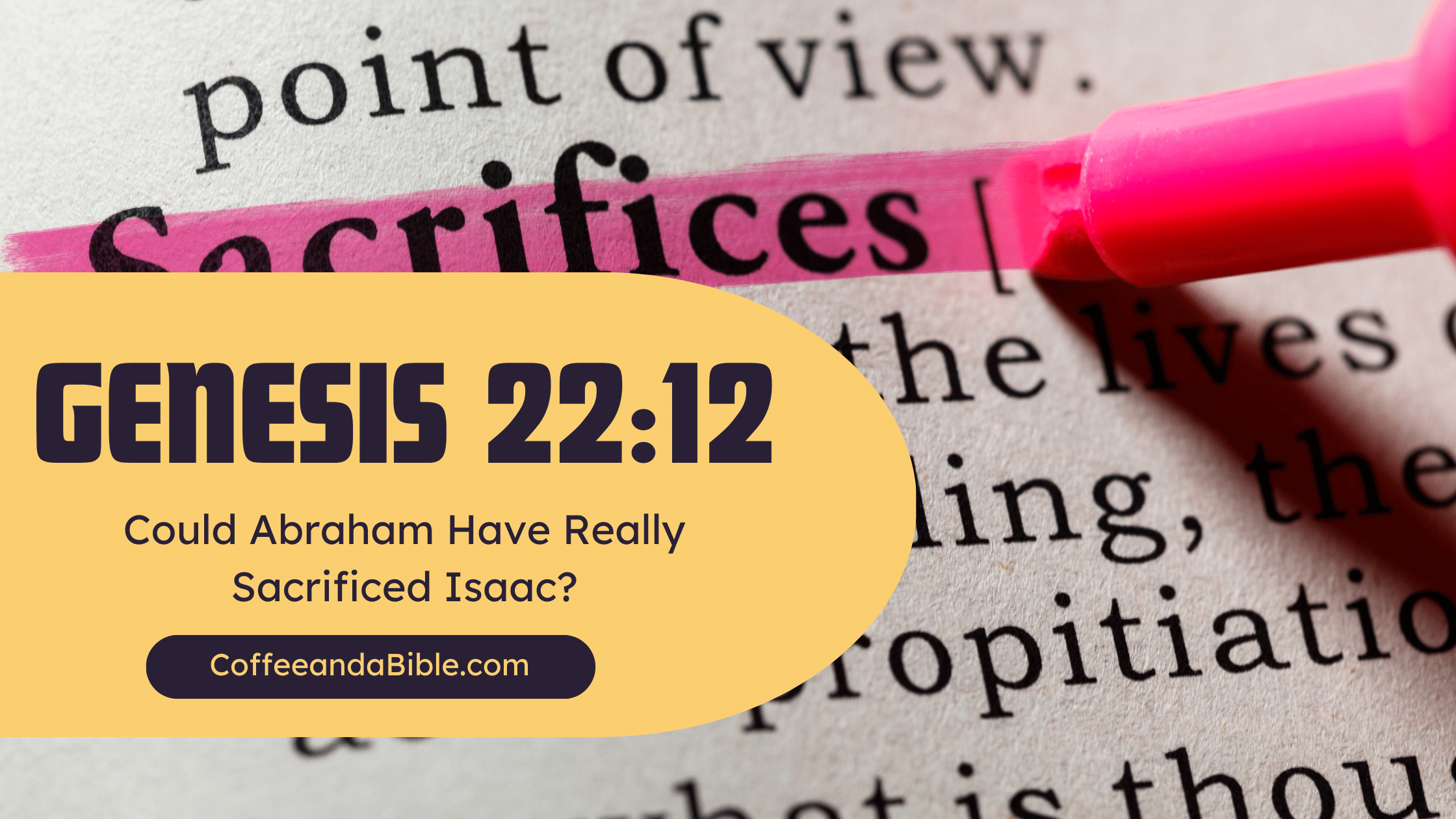At the exact moment that Abraham is about to bring down the knife into his son Isaac to offer him as a sacrifice, God intervenes.
Why? Because God tells him in Genesis 22:12, “Now I know that you fear God, since you have not withheld your son, your only son, from me.”
At this statement, Abraham puts the knife down and takes his son off the alter. He looks to a nearby bush, finds a ram, and sacrifices that instead.
That’s how the story in Genesis 22 unfolds. But were it not for God’s interjection, do you think Abraham would’ve gone through with the sacrifice?
The Argument Against the Sacrifice
There are two sides to this coin, and I think both of them have an equal argument into the text.
For those who would make the claim that they don’t think Abraham would’ve killed Isaac, a lot of the belief centers around the nature of human sacrifice. This is clearly a sin elsewhere in the Bible (2 Kings 16:3) and is also one of the sins of the people in Canaan (Deuteronomy 12:30-32). How could God possibly command it of His own people?
Furthermore, Abraham states his belief that Isaac would return from the mountain. In Genesis 22:5, Abraham tells the men that travelled with them to stay, while he and the lad went further and “they” would return back to them.
It’s clear, at least from that one statement, that Abraham fully believed Isaac would come back with him.
But does that insinuate that Abraham wouldn’t go through with the sacrifice?
The Argument For the Sacrifice
Count me as someone who fully believes that Abraham would’ve sacrificed Isaac unless God stopped him.
My reasoning for this is simple: God commends him for his willingness to do so. In Genesis 22:12, God tells Abraham that “now He knows” Abraham wouldn’t hold anything back from God — including his son.
From Hebrews 11:19, it’s clear that Abraham had faith in God’s ability to bring Isaac back to life. It’s very likely that this is why he told the people at the bottom of the mountain that “they” would come back.
It’s also why he didn’t balk at the idea of sacrificing the very child that God said would become a great nation. After all, Isaac couldn’t become a great nation if he were dead. He had to believe in order to fulfill that promise.
All of this points to another aspect of God’s character that I think provides another perspective. If God stopped Abraham from sacrificing his son, under the belief that Abraham “wouldn’t hold anything back” from God, doesn’t that make Abraham’s sacrifice a type of Christ’s?
God knew that Abraham was willing to give everything to God, including his son, if that was what God required. Likewise, God knew that the only way to redeem His people was by offering His Son.
And, like Abraham, Jesus was willing to make that sacrifice.
